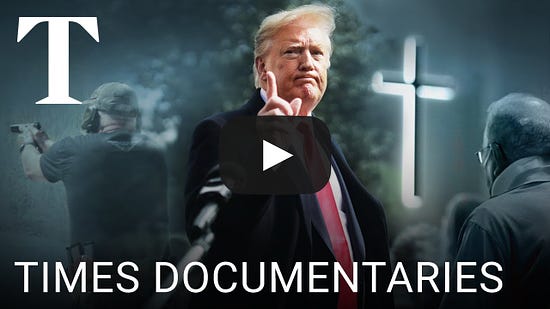Leader or follower?
The opinion piece copied and pasted below appeared in the Sunday, December 19, Spokesman. Shawn Vestal contrasts U.S. Rep. McMorris Rodgers (R-Eastern Washington, WA Congressional District 5 for sixteen years) with U.S. Rep. Liz Cheney (R-WY). The two have in common that they served successively as the chairperson of the House Republican Conference, “the primary forum for communicating the party’s message to members.” The chair of the House Republican Conference is to communicate, not craft, the party message. It is a position for a follower, not a leader. As a follower (and one of a handful of Republican women serving in the House), McMorris Rodgers served as chair for six years (three Congresses), the longest tenure for anyone, male or female, in three decades. On January 3, 2019, McMorris Rodgers was voted out as chair and returned to the position of a rank and file House Republican, stripped of putative leadership credentials. She was replaced by Rep. Liz Cheney. When Cheney denounced the January 6 insurrection her independence from the Republican message machine was not tolerated. Part way into her second term as chair Cheney was replaced by the more pliable, three term Republican Representative from New York, Elise Stefanik, a vocal supporter of Mr. Trump on May 14, 2021. The job of communicating the message of the Trump Party is once again in the hands of a follower and sycophant.
Vestal’s coverage of the contrast between Cheney and McMorris Rodgers is spot on.
Keep to the high ground,
Jerry
Shawn Vestal: The anti-Rodgers pays the cost of courage in modern GOP
Ever since Liz Cheney outmaneuvered Cathy McMorris Rodgers for her spot in House leadership a few years back, the Wyoming Republican has served as a kind of opposite number to the congressional representation we have here.
Where Cheney zigs, Rodgers zags. Cheney shows courage; Rodgers displays cowardice. Cheney puts principle over party; Rodgers puts party over everything. Cheney tells obvious truths; Rodgers lavishes praise on the emperor’s new duds.
Cheney is spending every bit of her political capital to root out the facts about Jan. 6; Rodgers is voting in lockstep with Team Amnesia.
They are the yin and yang of GOP politics. And because of the sorry state of those politics, the brave one is in exile, and the coward is perfectly secure.
Last week brought another example.
As the House select committee circled the coup-plotting former president’s chief of staff, Mark Meadows, it was Cheney’s straightforward, unvarnished voice bringing forth the evidence that Trump was begged repeatedly to call off the dogs while the Capitol was being stormed – begged by people who have since publicly minimized and lied about Jan. 6.
Cheney, facing another barrage of criticism and insults from her own team, delivered the plain truth on the House floor.
“All of my colleagues, all of them, knew that what happened on Jan. 6 was an assault on our Constitution,” she said. “They knew it at the time. Yet now they are defending the indefensible. Whether we tell the truth, get to the truth, and defend ourselves against it ever happening again is the moral test of our time. How we address Jan. 6 is the moral test of our time.”
Rodgers was busily meeting this moral challenge by tweeting about “#Bidenflation” and voting in lockstep against charging Meadows with contempt of Congress.
This was only to be expected. Rodgers, though she is a minor figure in the revisionist army, has loyally propped up the lies that brought us here, both directly and indirectly – lies that fueled Jan. 6 and lies that have been deployed ever since to minimize what happened and obstruct accountability.
The Trump era has put most GOP lawmakers – the ones who are not out-and-out nuts – into a tight corner: go along or sacrifice yourself on principle. A year ago, as Trump was cooking up plans to undermine the election and the corner was getting very tight indeed, these two representatives set out on very different paths.
The Supreme Court had just batted away an effort by Team Trump to have legitimate votes thrown out and to allow state legislatures to replace the will of the voters with a victory for Trump. Rodgers and 125 other members of Congress signed on to this reprehensible effort.
She also peddled clear, knowably false nonsense about the Pennsylvania elections. She planned to vote against the certification of Joe Biden’s electoral victory, a vote based on these lies. She did not waver in this stance even after the release of Trump’s phone call to Georgia elections officials made clear what kind of slimy mafioso tactics she was supporting.
Only after insurrectionists broke into the Capitol did she seem to wake up to what she and her fellow travelers had wrought. Being scared for your life will do that. She was described later as sitting outside the Capitol, tearfully texting that she was afraid for her country.
She showed a brief moment of clarity after that, when she reversed course and voted to certify the election after all. This has been described by more than one of her sycophants as “courageous.”
Courage ain’t what it used to be in the GOP, I guess. Fortunately, there is an actual instance of courage in the House, one that has stood higher and higher as Rodgers dried her tears and got over her concern for the country. Along the way, she’s done a lot of predictable shovel work for the party, carrying out the attack of the day against Biden with all the originality and verve that she’s come to be known for.
Meanwhile, Cheney was calling on her fellow representatives to stop lying about the election and give up on their unconstitutional plans to overturn the vote. As the Jan. 6 riot was unfolding, she angrily – and correctly – told Rep. Jim Jordan: “You … did this.”
She voted to impeach, and she has been among the very, very few in her party whose concern over Jan. 6 didn’t evaporate by Jan. 8.
Last week, she again vaulted in moral stature – while plummeting in party stature – as she read the damning texts that showed lawmakers and Fox News barkers literally pleading with the president to act while the rioters raged. The president, as everyone knows, did nothing for hours then told the rioters he loved them.
In ordinary times, what Cheney is doing would not be extraordinary. It might simply show that she’s a sentient being – able to identify and discern facts, unwilling to tell blatant falsehoods, and serious about her oath to the Constitution.
In these times, however, that makes her all but heroic. But you can’t tell the truth in today’s GOP, which is why Cheney is doomed and Rodgers is just fine.
The opinion piece copied and pasted below appeared in the Sunday, December 19, Spokesman. Shawn Vestal contrasts U.S. Rep. McMorris Rodgers (R-Eastern Washington, WA Congressional District 5 for sixteen years) with U.S. Rep. Liz Cheney (R-WY). The two have in common that they served successively as the chairperson of the House Republican Conference, “the primary forum for communicating the party’s message to members.” The chair of the House Republican Conference is to communicate, not craft, the party message. It is a position for a follower, not a leader. As a follower (and one of a handful of Republican women serving in the House), McMorris Rodgers served as chair for six years (three Congresses), the longest tenure for anyone, male or female, in three decades. On January 3, 2019, McMorris Rodgers was voted out as chair and returned to the position of a rank and file House Republican, stripped of putative leadership credentials. She was replaced by Rep. Liz Cheney. When Cheney denounced the January 6 insurrection her independence from the Republican message machine was not tolerated. Part way into her second term as chair Cheney was replaced by the more pliable, three term Republican Representative from New York, Elise Stefanik, a vocal supporter of Mr. Trump on May 14, 2021. The job of communicating the message of the Trump Party is once again in the hands of a follower and sycophant.
Vestal’s coverage of the contrast between Cheney and McMorris Rodgers is spot on.
Keep to the high ground,
Jerry
Shawn Vestal: The anti-Rodgers pays the cost of courage in modern GOP
Ever since Liz Cheney outmaneuvered Cathy McMorris Rodgers for her spot in House leadership a few years back, the Wyoming Republican has served as a kind of opposite number to the congressional representation we have here.
Where Cheney zigs, Rodgers zags. Cheney shows courage; Rodgers displays cowardice. Cheney puts principle over party; Rodgers puts party over everything. Cheney tells obvious truths; Rodgers lavishes praise on the emperor’s new duds.
Cheney is spending every bit of her political capital to root out the facts about Jan. 6; Rodgers is voting in lockstep with Team Amnesia.
They are the yin and yang of GOP politics. And because of the sorry state of those politics, the brave one is in exile, and the coward is perfectly secure.
Last week brought another example.
As the House select committee circled the coup-plotting former president’s chief of staff, Mark Meadows, it was Cheney’s straightforward, unvarnished voice bringing forth the evidence that Trump was begged repeatedly to call off the dogs while the Capitol was being stormed – begged by people who have since publicly minimized and lied about Jan. 6.
Cheney, facing another barrage of criticism and insults from her own team, delivered the plain truth on the House floor.
“All of my colleagues, all of them, knew that what happened on Jan. 6 was an assault on our Constitution,” she said. “They knew it at the time. Yet now they are defending the indefensible. Whether we tell the truth, get to the truth, and defend ourselves against it ever happening again is the moral test of our time. How we address Jan. 6 is the moral test of our time.”
Rodgers was busily meeting this moral challenge by tweeting about “#Bidenflation” and voting in lockstep against charging Meadows with contempt of Congress.
This was only to be expected. Rodgers, though she is a minor figure in the revisionist army, has loyally propped up the lies that brought us here, both directly and indirectly – lies that fueled Jan. 6 and lies that have been deployed ever since to minimize what happened and obstruct accountability.
The Trump era has put most GOP lawmakers – the ones who are not out-and-out nuts – into a tight corner: go along or sacrifice yourself on principle. A year ago, as Trump was cooking up plans to undermine the election and the corner was getting very tight indeed, these two representatives set out on very different paths.
The Supreme Court had just batted away an effort by Team Trump to have legitimate votes thrown out and to allow state legislatures to replace the will of the voters with a victory for Trump. Rodgers and 125 other members of Congress signed on to this reprehensible effort.
She also peddled clear, knowably false nonsense about the Pennsylvania elections. She planned to vote against the certification of Joe Biden’s electoral victory, a vote based on these lies. She did not waver in this stance even after the release of Trump’s phone call to Georgia elections officials made clear what kind of slimy mafioso tactics she was supporting.
Only after insurrectionists broke into the Capitol did she seem to wake up to what she and her fellow travelers had wrought. Being scared for your life will do that. She was described later as sitting outside the Capitol, tearfully texting that she was afraid for her country.
She showed a brief moment of clarity after that, when she reversed course and voted to certify the election after all. This has been described by more than one of her sycophants as “courageous.”
Courage ain’t what it used to be in the GOP, I guess. Fortunately, there is an actual instance of courage in the House, one that has stood higher and higher as Rodgers dried her tears and got over her concern for the country. Along the way, she’s done a lot of predictable shovel work for the party, carrying out the attack of the day against Biden with all the originality and verve that she’s come to be known for.
Meanwhile, Cheney was calling on her fellow representatives to stop lying about the election and give up on their unconstitutional plans to overturn the vote. As the Jan. 6 riot was unfolding, she angrily – and correctly – told Rep. Jim Jordan: “You … did this.”
She voted to impeach, and she has been among the very, very few in her party whose concern over Jan. 6 didn’t evaporate by Jan. 8.
Last week, she again vaulted in moral stature – while plummeting in party stature – as she read the damning texts that showed lawmakers and Fox News barkers literally pleading with the president to act while the rioters raged. The president, as everyone knows, did nothing for hours then told the rioters he loved them.
In ordinary times, what Cheney is doing would not be extraordinary. It might simply show that she’s a sentient being – able to identify and discern facts, unwilling to tell blatant falsehoods, and serious about her oath to the Constitution.
In these times, however, that makes her all but heroic. But you can’t tell the truth in today’s GOP, which is why Cheney is doomed and Rodgers is just fine.


